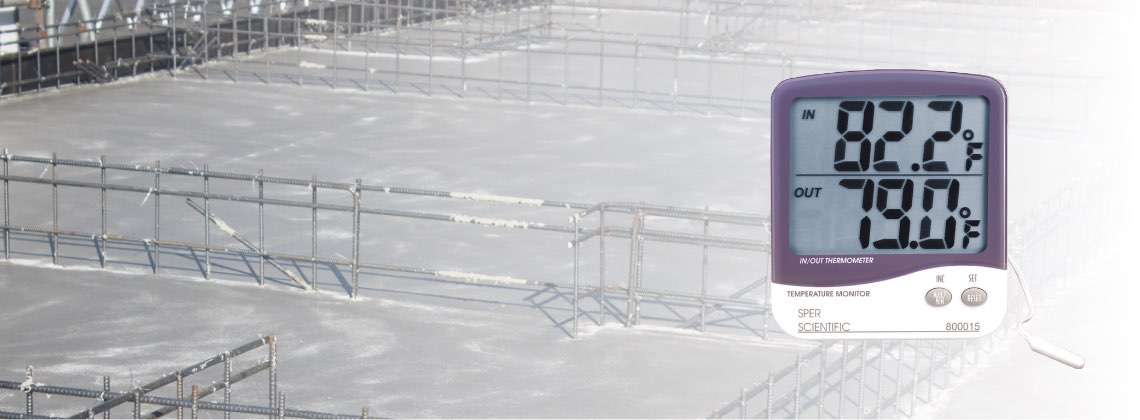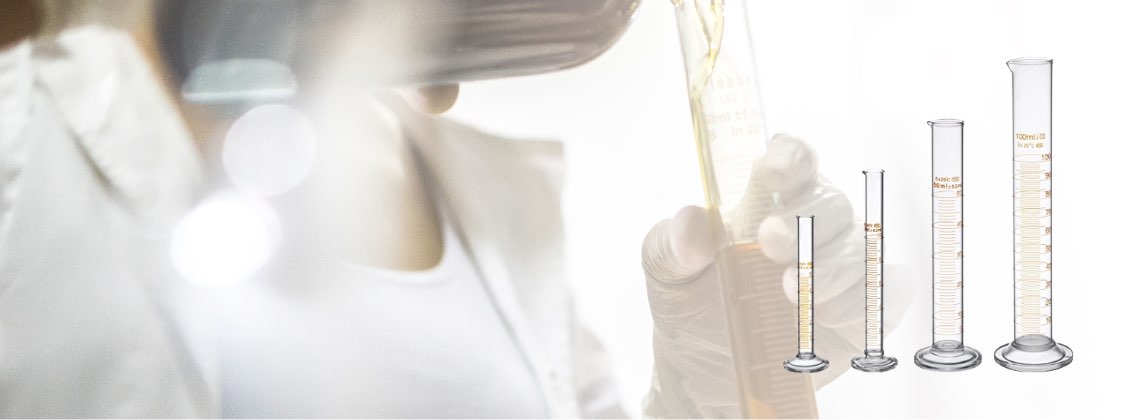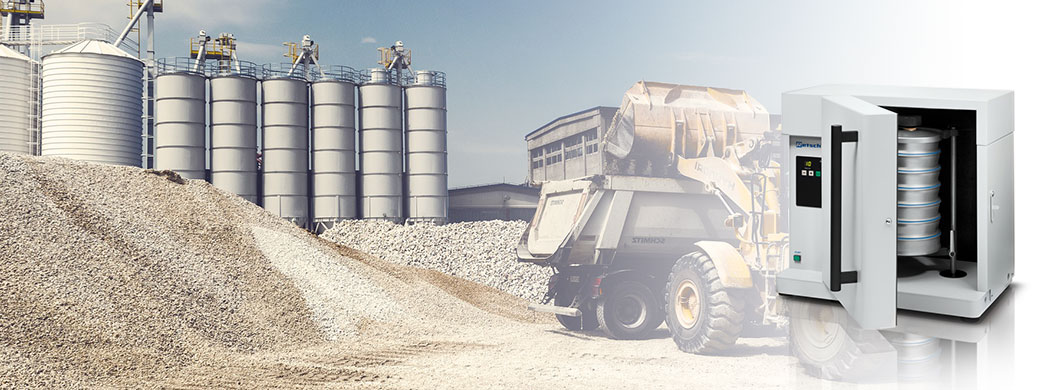Considerations When Choosing a Lab Grade Thermometer for Concrete Testing
Mar 09, 2020
Keeping tabs on concrete temperature throughout the setting process is crucial to ensure the concrete's strength and quality once complete. Temperatures that are too high or too low can have a negative impact on the concrete's mix design, and they can ultimately cause a project to fail because it doesn't meet ASTM, AASHTO or other specifications. Luckily, it's quite easy to keep tabs on concrete temperature with a simple lab grade thermometer. Before you choose the first thermometer you come across, however, you should keep a few important considerations in mind.
Different Types of Thermometers and Their Uses
Modern technology has given us several different types of thermometers that have their own unique strengths and features. Most will fall into one of the following categories.
Liquid-in-Glass Thermometers
This category represents the classic image that probably pops into your head when you hear the term "thermometer." Liquid-in-glass (LiG) thermometers consist of either mercury, red alcohol or another liquid substance sealed in glass with volumetric measurements printed on the casing. Based on the laws of thermal expansion, the liquid within the glass will expand or contract depending on how hot or cold the substance is, providing a fairly high level of accuracy. Mercury thermometers in particular are hailed for their ability to measure extreme temperature ranges.
But, are mercury thermometers accurate? Yes; mercury has certain thermal expansion properties that can make these thermometers more accurate for temperature readings than other LiG materials. The bigger issue is that mercury is hazardous and, therefore, prohibited in certain municipalities. Mercury thermometers are also no longer calibrated by the National Institute of Standards and Technology (NIST), although the ASTM still requires their use in certain testing situations that require a 7C or 7F thermometer (no other LiG materials can be used as accurately for this purpose). Always be sure to check your locale's regulations before using a mercury thermometer for your application, or simply use other accurate LiG thermometers to be safe.
Bimetallic/Bimetal Thermometers
These thermometers are often used to measure the temperature of food and beverages. They are mechanical, using two metal strips (often steel and copper or brass) that bend at different rates when exposed to heat to move a dial along a scale. They're a durable and fairly accurate solution, often displaying readings at an accuracy of ±1%. They are also safe, durable and inexpensive. However, certain environments can throw off the calibration of bimetal thermometers, making them less accurate and consistent than LiG thermometers, so they may not be the best choice for concrete testing purposes.
Digital Thermometers
Digital or electronic thermometers are some of the most technologically advanced options available, using electronic circuitry and microchips to provide quick, accurate results. They can include many features depending on how complex they are, including automatic calibration, data logging, maximum/minimum temperature recording and timestamping. Given these advanced features, they can be much more expensive than a traditional LiG or bimetallic thermometer.
Another advantage of digital thermometers is that they do not contain any toxic or hazardous materials, making them safe for any use. They also provide results faster and, in certain cases, do not require calibration via boiling or ice bath to provide accurate readings.
Infrared Thermometers
Another advanced style, infrared thermometers measure temperature by converting infrared energy into an electrical signal that provides a temperature readout on the device's display, all without making actual contact with the substance being measured. They can measure a broad range of temperatures, as well. However, infrared thermometers do not have a very high degree of accuracy and are generally used for repeatability purposes instead.
Digital Thermometers vs. Mercury Thermometers
One of the biggest debates about lab grade thermometers is whether digital or mercury is more accurate for concrete testing (or any temperature measuring) purposes. Consider these factors that distinguish digital and mercury thermometers:
- Digital thermometers are more precise than mercury.
- Digital thermometers can log temperature readings and even connect to laptops for further analysis at a later time.
- Mercury thermometers are more affordable than digital while still providing accurate results.
- Mercury is a toxic substance that is banned in certain areas.
- Digital thermometers provide faster results.
- Digital thermometers can sometimes self-calibrate, which saves time otherwise spent on hot/cold bath calibration.
- Certain testing processes call for the use of mercury thermometers as a standard.
Other Factors to Consider When Choosing a Lab Grade Thermometer
Aside from accuracy of results, there are varying levels of convenience and features that different thermometers can provide to make your job quicker and easier. Take these factors into account when choosing your lab grade thermometer as well:
- Temperature display options (Fahrenheit, Celsius, Kelvin)
- Response time
- Temperature range capabilities
- Display types (printed scale or digital screen)
- Casing material (plastic, glass or metal, depending on the volatility of substances being measured)
- Application (field or lab use)
- Cost
- Testing process specifications and standards
- Logging/laptop hookup capabilities
5 Best Lab Grade Thermometer Options from Certified MTP
- Sper Scientific Min/Max Memory Thermometer: This digital thermometer simultaneously displays internal and external temperature, has min/max memory and comes with a Certificate of Calibration Traceable to NIST.
- Concrete Thermometer Stick: This organic filled stick thermometer measures a temperature range of 0-125°F, uses red liquid against a yellow background for easy readability and is protected by a sturdy aluminum shroud.
- Asphalt/Concrete Stem Thermometer: The bimetal thermometer has a measurement range of 50-500°F, displayed in increments of 5, and meets or exceeds ASTM E-11 specifications.
- Pocket Digital Thermometer: This small digital thermometer measures temperatures from -58-500°F (-50-260°C) for quick, accurate readings.
- Digital Min/Max Thermometer: On top of simultaneously displaying min/max temperature ranges, this lab grade thermometer is water resistant for extra durability in wet environments.
Choose Your Concrete Testing Products from Certified MTP
Certified Material Testing Products is proud to supply you with one of the widest and highest-quality selections of thermometers for concrete testing online. No matter what purpose your lab grade thermometer needs to serve, you can find the ideal type for your application with us. Have questions? Contact us today to learn more about our products.




